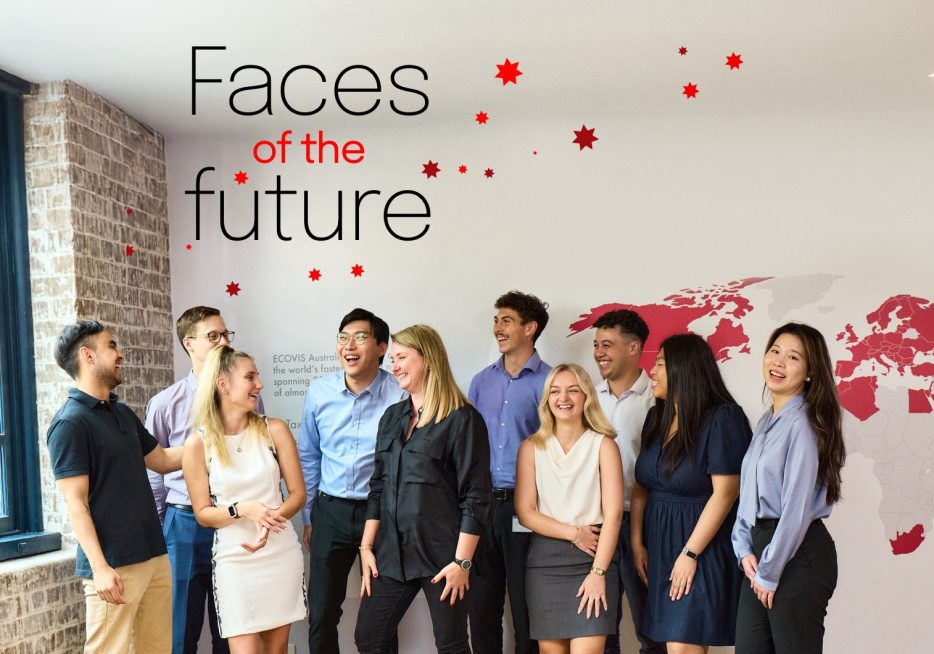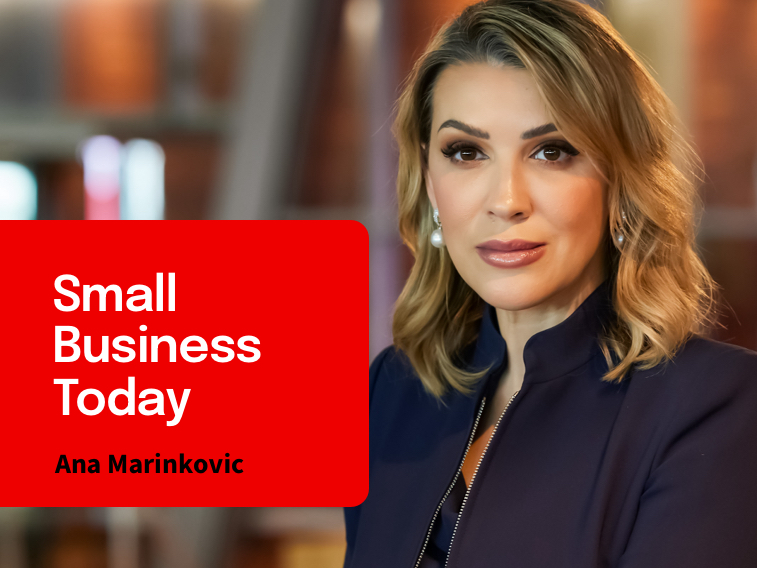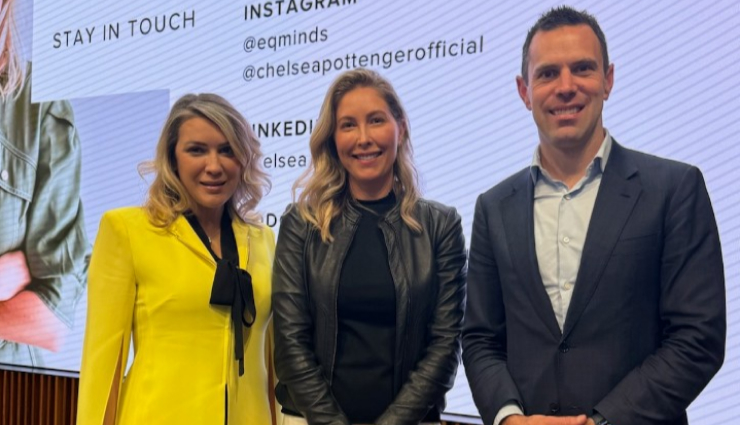Having passionate young professionals on the team is proving a powerful differentiator for Ecovis director Elissa Lippiatt.


Video
As International Women’s Day approaches, Executive General Manager of NAB Small Business, Ana Marinkovic, shares her view on how to offer greater support to women-led small businesses

Recent studies suggest it’s often a lack of confidence that holds women back in business. But it would be wrong to assume a supposed inherent insecurity is responsible for this lack of confidence.
Confidence, in fact, comes when an environment is conducive to diversity and inclusion. In Australia, that’s not the case in many business sectors.
And the truth is, at the higher echelons of private equity and venture capital, it’s still a very male-dominated and culturally homogenous world.
It’s little wonder that women, particularly minority women, might lack the self-assurance to forge ahead in business.
Not only does it mean they often miss out on the empathy of like-minded people, but they also lack the all-important mentorship, networks and funding that come with it.
I don’t find it surprising that cities like London and New York are at the top of the Dell Women Entrepreneurs Cities Index 2023.
Their populations are extremely diverse. As a result, issues of gender, ethnicity and religion in the corporate and business world are less likely to hold people back to the same degree as in Australia, where the upper management in many of our top companies doesn’t reflect the diversity of their customer base.
True, one of the reasons these cities scored so highly was their ability to raise much needed capital. But here in Australia it doesn’t matter how much funding there is at the table if, culturally, these people don’t feel comfortable about giving the money to a woman who has just had a baby and whose English may be poor.
Beyond the workplace, there are other parts of Australia’s social ecosystem that hold back businesswomen. Take, for instance, how we approach childcare. It’s far behind where it needs to be if we are going to have a serious conversation about financial equity.
Childcare in Australia is less affordable compared to most other OECD countries, according to a recent ACCC report, and it’s predominantly women who suffer from not being able to afford it.
It’s also a matter of too few hours and too few services. Let’s face it, a 3.30pm finish for children at school doesn’t fit neatly into the traditional business day and it’s predominantly women who are making sacrifices to ensure they make the daily pick-up time.
Moreover, what if there simply isn’t any care available? That’s often the case in the more remote parts of Australia, where the same ACCC report confirms there are fewer childcare services. In fact, we talk a lot with small business owners in regional and agri areas that are daycare ‘dead zones’ where the closest facility is a hundred-plus kilometres away.
These are all issues we should be considering this International Women’s Day – even as we remind ourselves of how we, as women, can be part of the solution.
There’s no doubt that women, gratifyingly, can and do have a large role to play in encouraging and nurturing other women in business.
Take the not-for-profit organisations SBE Australia and Apropela (formerly Heads Over Heels). Founded by women, both provide opportunities for women to grow their businesses through mentoring and networking. And they’re clearly making a difference. A 2022 survey by Deloitte Access Economics found their efforts had lifted the confidence or self-esteem of 94 per cent of their participants.
At the same time, almost 9 in 10 participants (88 per cent) reported a strengthened entrepreneurial culture and 79 per cent said they’d developed their business skills along the way.
Of course, for women who are Indigenous, have a disability or who are newly arrived in Australia (as an immigrant or refugee), greater help is required if they are to successfully overcome the barriers confronting them.
Fortunately, some great support networks have appeared over the past decade.
There’s Strong Women, Strong Business, which provides Indigenous women with support, advice and networking opportunities. Migrant Women in Business gives female migrants guidance and support in business, education, politics and community leadership. Thrive Refugee Enterprise, another not-for-profit, is dedicated to helping refugees and asylum seekers start and grow their own small business.
Recently, I was lucky enough to speak with the amazing Christina Ryan, who is CEO and founder of the Disability Leadership Institute – the world’s first organisation focused on leadership that is owned and run by disabled people. Its support includes coaching, training, networking and a range of other resources.
There are countless other groups – Chief Meta Chicks, Behind Closed Doors, HerBusiness, Business in Heels, Apropela and the highly localised Women with Altitude, among others, that go out of their way to support women in business in their state, across Australia or even internationally.
Certainly, they’re not just here to help you establish your new business. These organisations are all about helping you to take the next big step – to secure the next stage of funding, for instance – as you work to grow your business.
But it’s not just formalised support that will help lift us all. It’s also the everyday acts of everyday individuals.
For those of us who once started a micro business – which became a small business before becoming an even bigger business – it’s imperative we consider diversity and inclusion from the lens of when we first started out. It’s also important to ‘pay it forward’ as it were – to become the mentor that other women so desperately need.
By ensuring we as individuals are part of the solution, we as a community have a much better chance of making a genuine difference. Put simply, if we wait for others to make the much-needed changes, it’s not going to happen.

Time and again we see inspiring examples here at NAB – women who have become leaders in their own right, often through the toughest of circumstances.
There’s our customer Joeline – mother, wife, sister, colleague and small business owner of Hartley’ Fresh Market in Ballina, NSW. Awarded 2023 Australia Women in Small Business Champion (Food Service), her support extends far and wide, including in response to the devastating 2022 Northern Rivers floods where her help and resilience made an incredible difference to her community.
She now has plans to open a youth centre/community hub in her local area, motivated by the loss of her son at a young age.
It’s often the personal journey that can end up seeing us triumph. Another NAB customer, Chelsea Pottenger, has also had to overcome huge odds on her path to success. Having battled severe postnatal depression that saw her admitted to hospital, she went on to found EQ Minds, which delivers science-based mindfulness workshops to employees. Though not always easy – Chelsea has managed mental health relapses amid EQ Minds’ rapid growth – this courageous woman has stayed grounded in her vision to spread awareness.
Whatever your business or background, I encourage you to think inclusively when making your business decisions. A diverse workforce will drive creativity, innovation and present opportunities to further grow your business.
© National Australia Bank Limited. ABN 12 004 044 937 AFSL and Australian Credit Licence 230686.